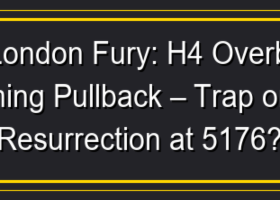By Bill Bonner in London, England
People come to think what they must think when they must think it. But what do they think now? Why do they think stocks are so valuable?
Apparently, they believe that Janet Yellen, Mario Draghi and Haruhiko Kuroda — the powers that be — will continue to make stocks go up.
The Fed has stopped active liquidity pumping. But it still has its hand on the pump handle, just in case.
The European Central Bank is promising and preparing to pump as soon as it can get the Germans out of the way. And the Japanese — the world leaders in modern state finance — are pumping with both hands.
Since 2009, the Fed has put more than $3.5 trillion to work on investors' behalf.
This — along with the help of the ECB, the Bank of Japan, the Bank of England, the People's Bank of China, etc. — has helped lift stock markets by $18 trillion.
And corporate chiefs — now back in their cushy seats after the holidays — are borrowing more money to buy their own shares. They, more than anyone else, have figured out how to game the Fed's system.
They take the Fed's zero-interest-rate credit. And they use it to buy back their own shares. This pushes up the value of the remaining shares. Which leads to big, fat bonuses.
And so one of the wonders of the modern financial world unfolds before our dumbstruck eyes: borrowing from someone who has no money… charging it to someone else's account… and pocketing a good part of the cash.
The average S&P 500 CEO got an $11.7 million compensation package in 2013. Last year must have been even better, though we don't have the figures yet.
Meanwhile, the dollar rises and foreign investors move their money into US stocks and bonds, seeking safety and capital return in a market where the former is illusory and the latter is fraudulent.
Good luck to them all!
Sooner or later Mr Market will have his say. He always does.
But this may need explanation…
If central banks are committed to pumping more money into the system (birds gotta fly, fish gotta swim, the Fed's gotta pump), why should stocks ever fall?
Good question. Beneath the phony market created by artificial intervention is a real market. Real buyers and real sellers.
At some point, the supply exceeds the demand. Then the smartest people in the room get worried. They move toward the door…quietly.
Then the next smartest people notice that the geniuses have left the room…and they, too, begin edging toward the door. Then short sellers move in. Prices drop. And pretty soon, the market is in free-fall.
That is what always happens. Bubbles always pop. It happened to the dot-coms, to houses, to subprime mortgage companies, to oil and to the oil-slick debt.
‘Prospects dim for US high-yield debt’, reports the Financial Times.
We have no special insight into this process. But we have faith in it. Nothing lasts forever; of that we are sure.
We also have faith in certain reliable patterns of human behaviour. No one escapes the cemetery. And markets follow boom-bust cycles. Always have. Always will.
We are now in what appears to be a boom cycle on Wall Street. It could last much longer…and go much further.
Often, a boom of this magnitude needs an all-out, barn-burning, super-duper final stage before it blows up.
Our guess — and it is just a guess — is that there will be another big scare before the final top of the equity bubble is achieved.
We expect a frightening fall…a quick reaction from the Fed…and then the great race to disaster will enter its Last Looney Lap.
Regards,
Bill Bonner,
For The Daily Reckoning



